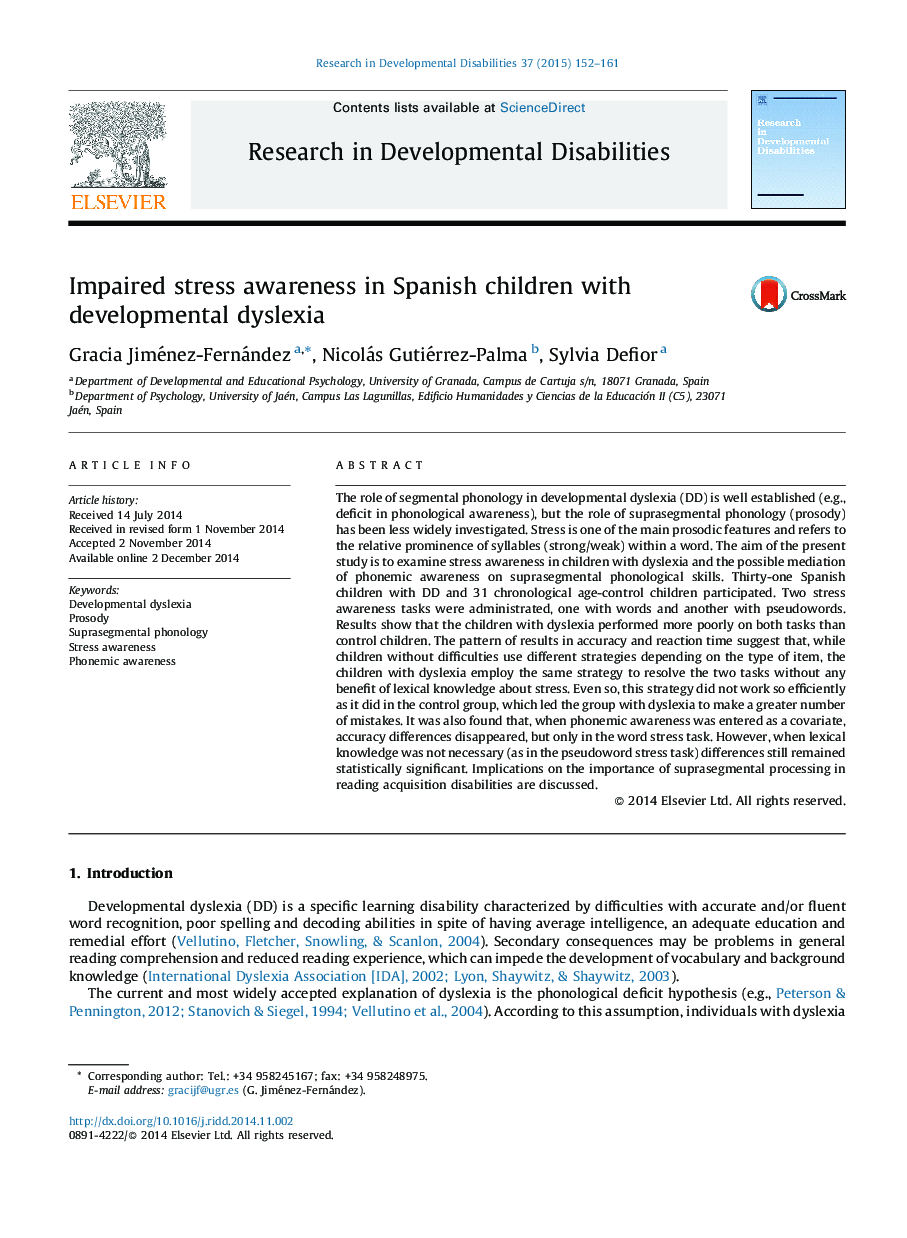| Article ID | Journal | Published Year | Pages | File Type |
|---|---|---|---|---|
| 371316 | Research in Developmental Disabilities | 2015 | 10 Pages |
•Spanish children with dyslexia show impaired stress awareness.•Stress awareness is mediated by phonemic awareness in words.•Stress awareness appears to be independent of phonemic awareness in pseudoword.•The importance of studying stress awareness with pseudoword is emphasized.
The role of segmental phonology in developmental dyslexia (DD) is well established (e.g., deficit in phonological awareness), but the role of suprasegmental phonology (prosody) has been less widely investigated. Stress is one of the main prosodic features and refers to the relative prominence of syllables (strong/weak) within a word. The aim of the present study is to examine stress awareness in children with dyslexia and the possible mediation of phonemic awareness on suprasegmental phonological skills. Thirty-one Spanish children with DD and 31 chronological age-control children participated. Two stress awareness tasks were administrated, one with words and another with pseudowords. Results show that the children with dyslexia performed more poorly on both tasks than control children. The pattern of results in accuracy and reaction time suggest that, while children without difficulties use different strategies depending on the type of item, the children with dyslexia employ the same strategy to resolve the two tasks without any benefit of lexical knowledge about stress. Even so, this strategy did not work so efficiently as it did in the control group, which led the group with dyslexia to make a greater number of mistakes. It was also found that, when phonemic awareness was entered as a covariate, accuracy differences disappeared, but only in the word stress task. However, when lexical knowledge was not necessary (as in the pseudoword stress task) differences still remained statistically significant. Implications on the importance of suprasegmental processing in reading acquisition disabilities are discussed.
